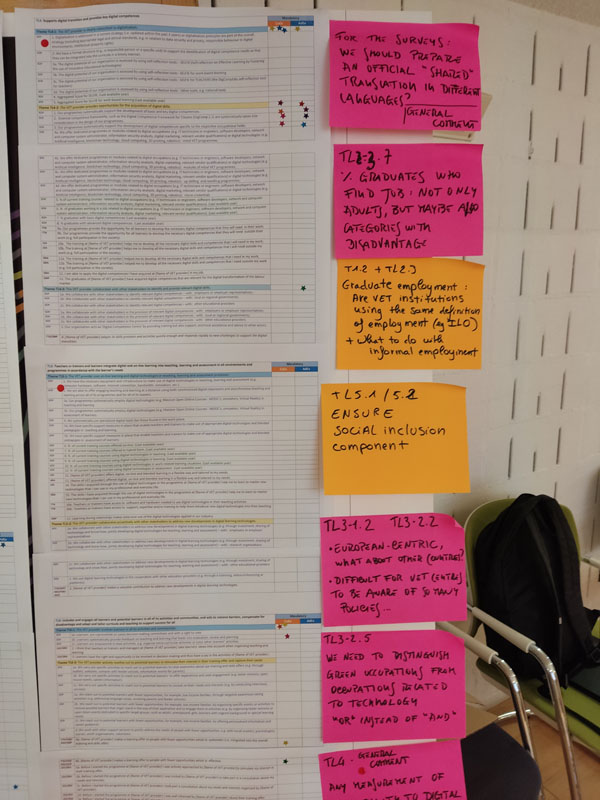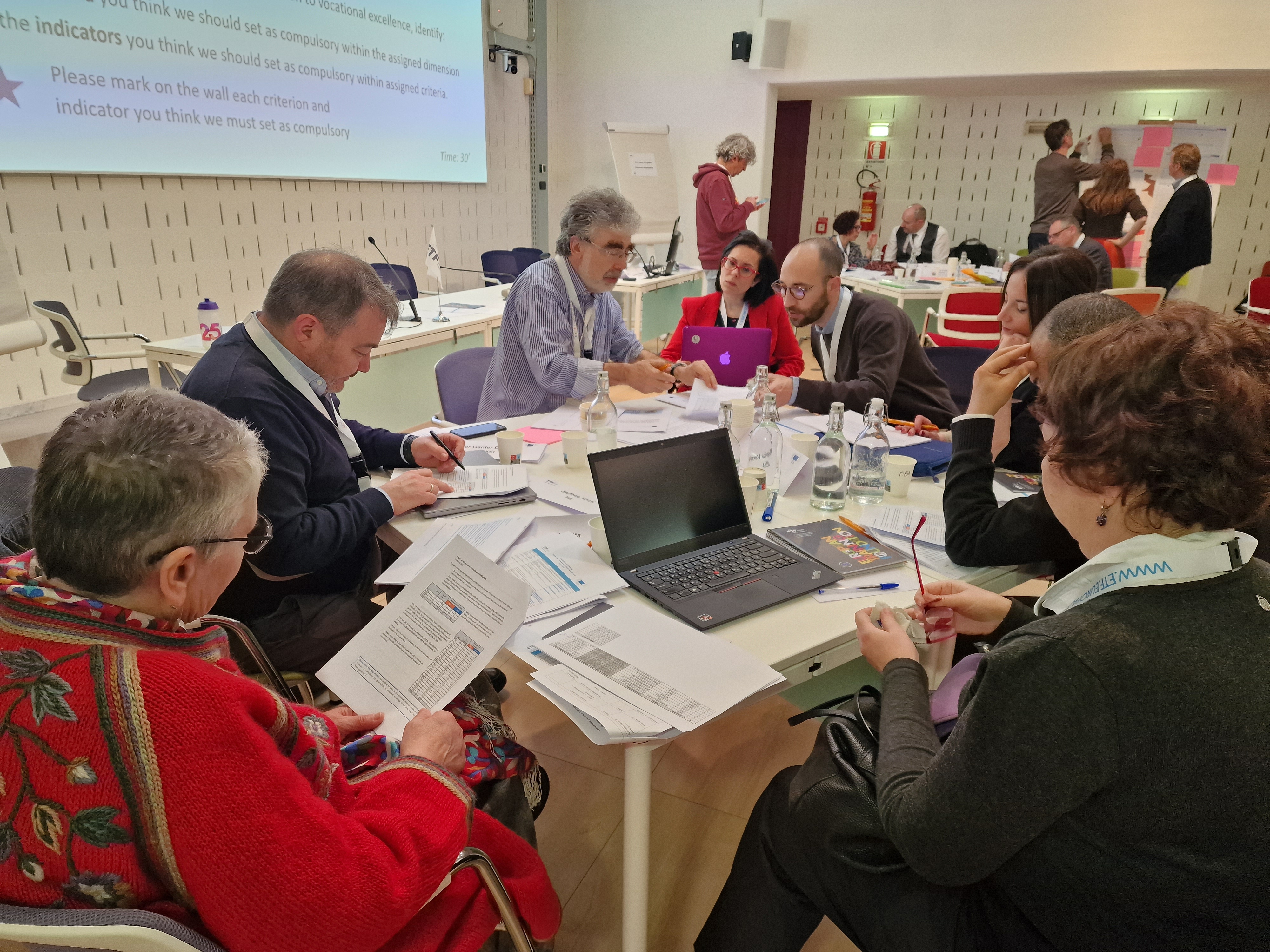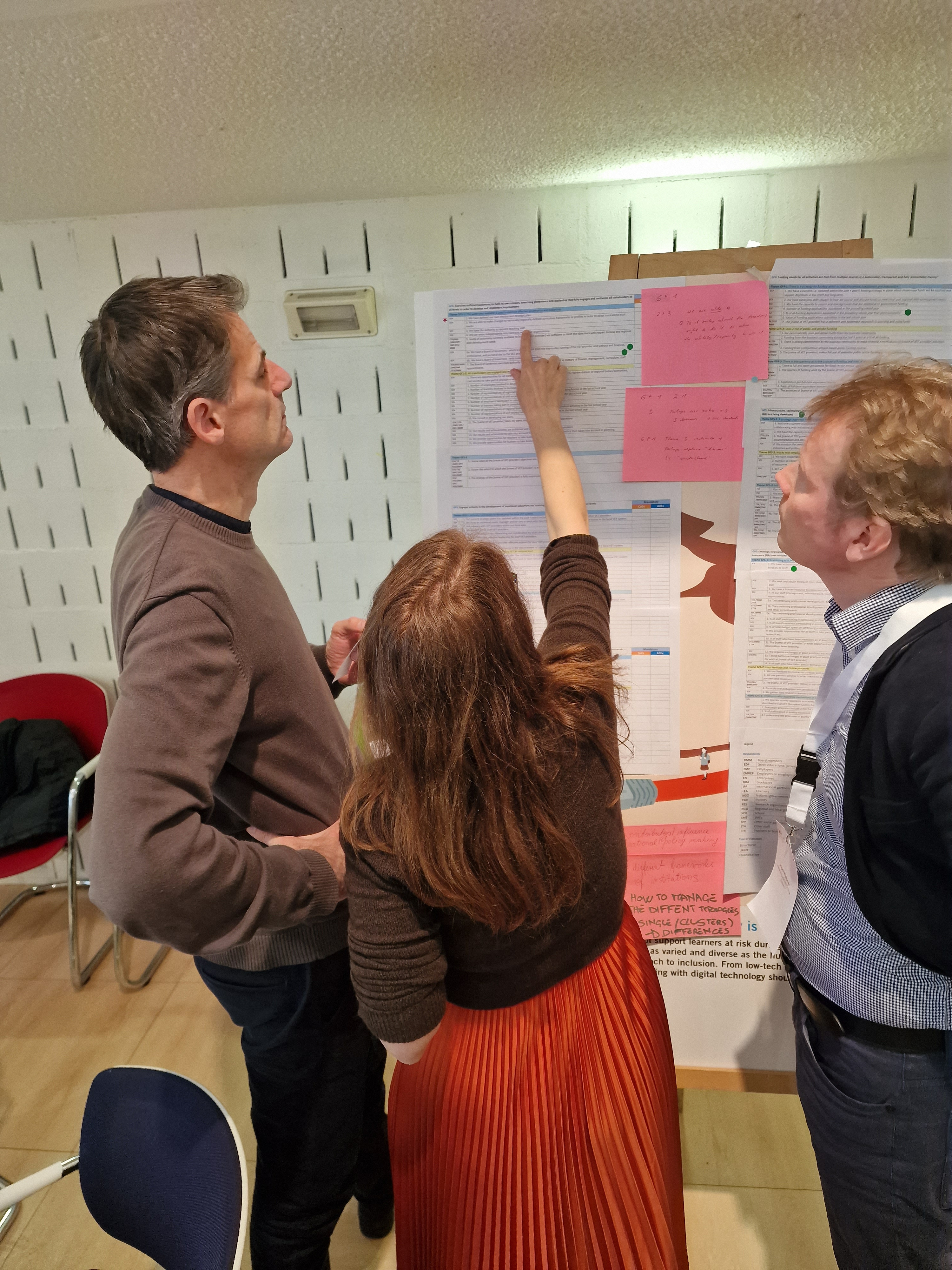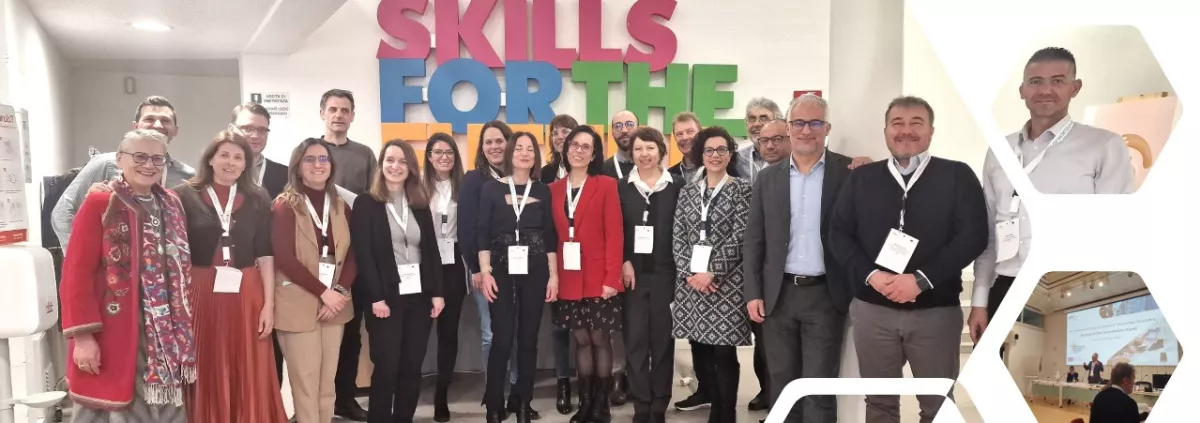The Consultative Panel for Building Vocational Excellence through International Cooperation met on February 23rd at Torino.
Representatives from Erasmus+ CoVEs, International VET Associations and VET Providers, National Ministries and Development Agencies reviewed the 23 criteria and the 427 evidence indicators that will power the new European tool for the self-assessment of CoVEs.

Theodor Grassos, of EVBB, described the improvements he saw in the revised version of the framework. Detailed discussions generated proposals for some new indicators and some simplifications.
Ana Ramos, from Humana, made suggestions as to how the framework could be made more accessible for VET Providers outside of Europe. It was agreed that the framework is now largely complete and ready to be piloted by schools.

Lida Kita of ETF asked for it to be tested by learners as well as teachers.
The Panel recognised the importance of a broad framework – which makes explicit the range and high quality of activities that CoVEs can perform. However, they also urged that the self-assessment tool should be accessible and useful to all VET Providers. Small centres should not be intimidated by too many challenging indicators – they should have the opportunity to control the level of challenge, the scale of their self-assessment and the kinds of comparisons which they think are useful.
Furthermore, Giulia Meschino of EVTA pointed out that without advice, support and preparation, VET Providers would not be able to make full use of the tool, and it could disadvantage less developed VET providers.
The Panel commented on proposals for labels to formally recognise VET Providers that were committed to developing vocational excellence and that could demonstrate a high level of excellence. Many agreed with Stefano Tirati, of EfVET, that recognising differences in the vocational excellence of VET providers was fair – and that it could help to inspire and share excellence.
 However, it was recognised that VET Providers work under different regulatory frameworks, with different resourcing, in different contexts – so the implications of setting universal minimum standards for an international label need to be thought through and tested.
However, it was recognised that VET Providers work under different regulatory frameworks, with different resourcing, in different contexts – so the implications of setting universal minimum standards for an international label need to be thought through and tested.
Stefan Thomas updated the Panel on emerging findings from a series of international case studies that ETF is conducting that show how CoVEs are addressing the green and digital transitions and engaging in applied research.
The Panel will continue in order to monitor and review the pilot and the development of the platform, and will be involved in the finalisation of the feasibility study for the quality award, shaping both the design and the recommendations for implementation.
More info about ISATCOV - EQUIPPING CENTRES OF VOCATIONAL EXCELLENCE TO DRIVE IMPROVEMENTS IN VOCATIONAL EDUCATION AND TRAINING
Curious about the topic? Check the speaker's presentation.
